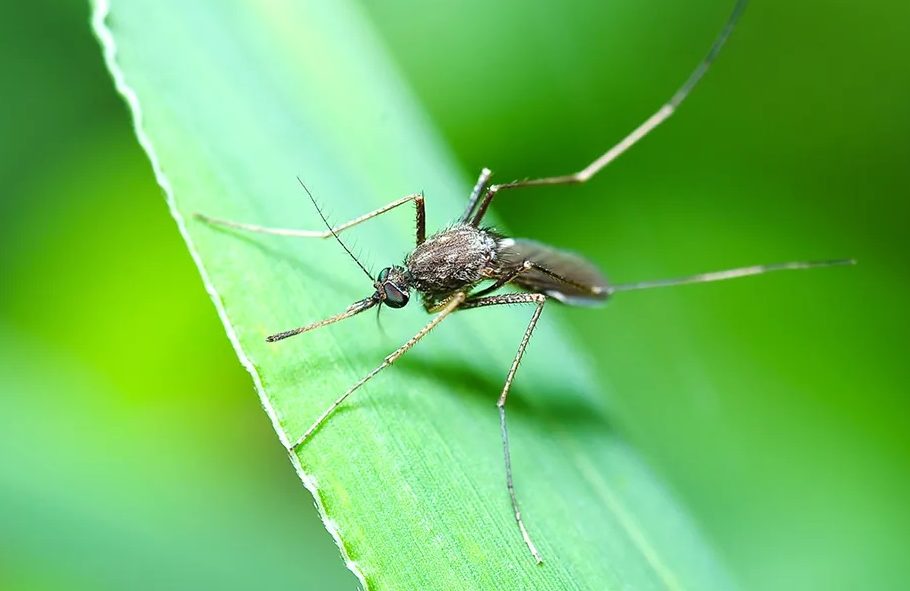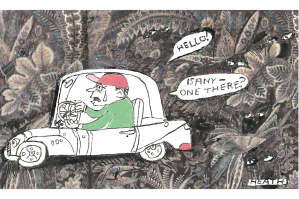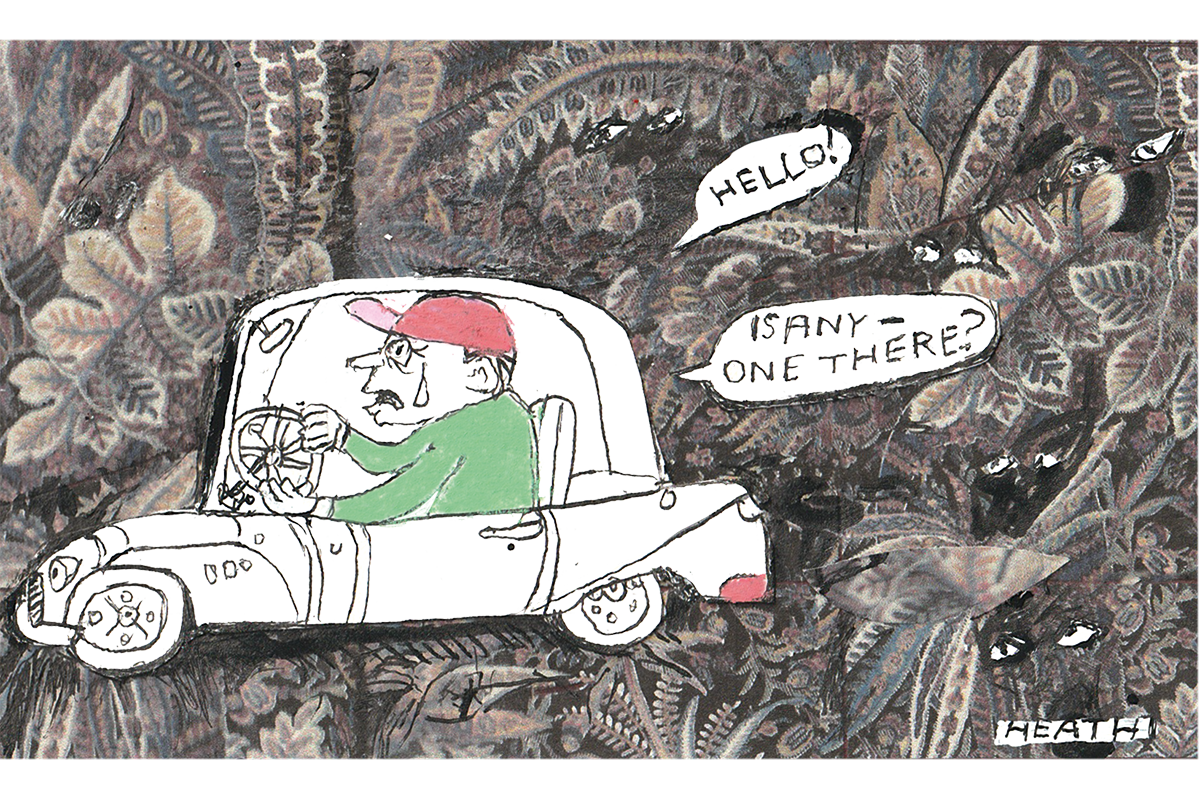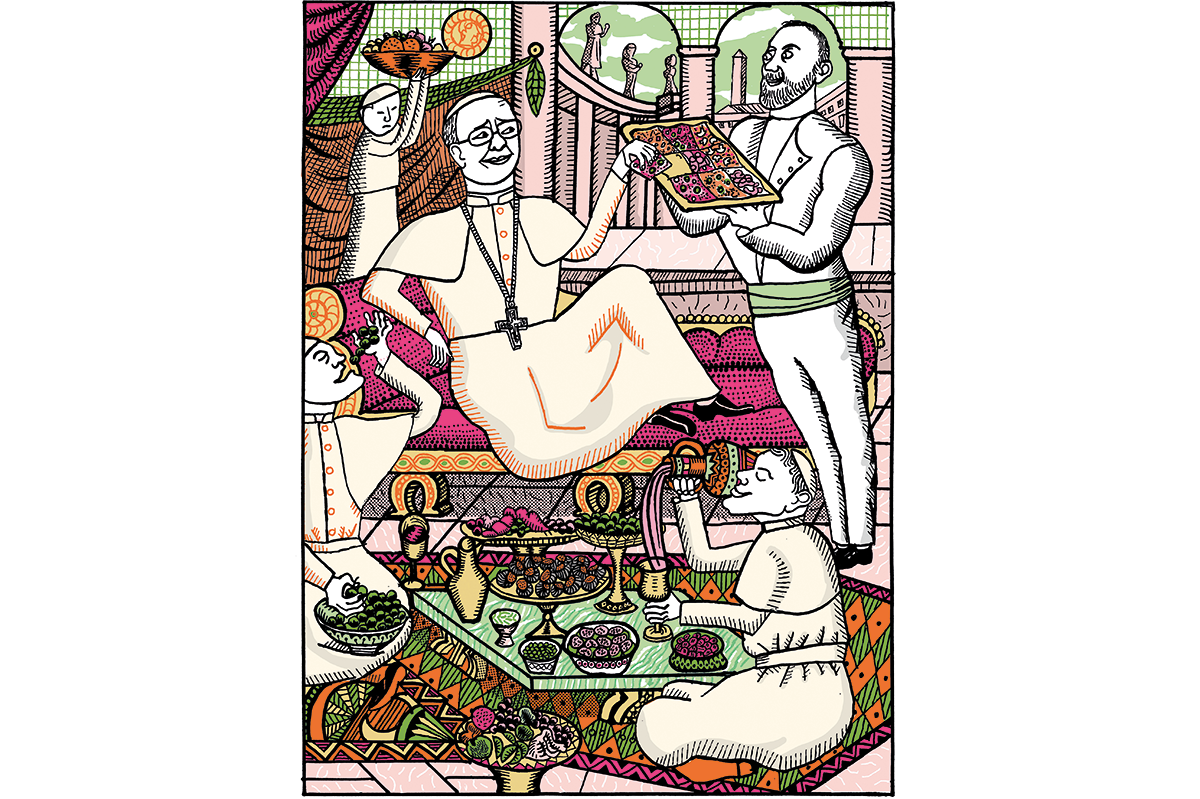Ravenna, Italy
The sun was setting on the first day of spring and I felt unusually happy as I fed the donkey. Winter, along with the fog and all the rest of it, had gone at last. But then from somewhere near my right ear I heard a small whining sound that for a moment I did not recognize. It was the first mosquito of the year. And I remembered how biblical it all gets round here under the Italian sun, insect-wise.
Sometimes I wish I’d stayed up in the Apennines where there were no mosquitoes, just giant wasps
There are a whole host of insects and other things, real, imagined, and in between, that prey on the bodies and minds of me, my wife Carla and our six children. By May, there will be so many mosquitoes on active service that sitting on the terrace with a bottle of chilled whatever to contemplate the blood-red sun go down is quite out of the question. We live a mile from the coast near Ravenna, which was the last capital of the Western Roman Empire and for centuries the headquarters of its Adriatic fleet. The remains of the antico porto, where that fleet was based, lie high and dry six miles inland from our house. The area was once a delta of swampy rivers and lagoons.
I fantasize about using part of the house for a bed and breakfast as we are so near Lido di Dante, which is named after the poet but famous for its nudist beach. Nudists are loaded but the idea is obviously doomed. Quite apart from the issue of guests having to take cover at sunset, tourists seem unable to cope with even a single mosquito in their hotel rooms. And many more than one makes it into our house.
Sometimes I wish I’d stayed in Predappio, up in the Apennines thirty miles away, where there were no mosquitoes — although there were giant wasps. Called vesponi — a Chinese invader, apparently — they were active at night banging about the lights and chasing me to and from the car. One morning, I found a scorpion inside my underpants as I was putting them on.
Down here behind Dante’s Beach, the ants, too, are stirring. If mosquitoes make me think of the Luftwaffe and Stuka dive bombers, ants are like the Viet Cong and the Ho Chi Minh Trail. They emerge in the kitchen from God knows where in the depths of the house to swarm around anything edible and then disappear again, carrying off what they can’t eat to process later. Dousing them with alcohol or boiling water merely kills those out in the open. The only solution is to block off the entry points from which they emerge. An entire army can arrive from nowhere via a tiny pin-prick of a hole. This year I’ve started using a rubbery super-glue. Ants can drill through almost anything but, so far, not this.
It does not end there. How could it? The farmers treat the fields like factories and enhance them with all sorts of stuff, which causes industrial levels of flies. I had vaguely hoped that the bats would help, at least with the smaller insects. We’ve got lots and they are supposed to eat mosquitoes by the barrel-load. A Norwegian PhD student recently timed bats with his stopwatch and found they can eat twenty mosquitoes a minute — 1,200 an hour. At night, we see our bats swooping this way and that but they don’t make any difference. They don’t seem to be swooping low enough.
There is just one insect that we all look forward to as the heat intensifies: the firefly
It is when it comes to spiders that we begin to lose touch with reality. Carla was once bitten on a foot while in bed and it swelled up. She believes the culprit was a highly poisonous violin spider. They are, according to my internet investigations, brown with reddish legs and a violin pattern on their heads. Lots of spiders look like that but she and the children are convinced. Shouts of “Violino! Violino!” are frequent.
“There were two tiny red dots where the teeth went in,” she says, making biting motions with two fingers. Ten days later, when the swelling did not go down, she decided to insert a needle and try to extract whatever was inside. “I pulled out a long string of what looked like the spittle they use for their webs.”
I saw none of this. But who am I to judge? Perhaps the ants have quietly carried away our sanity. My twelve-year-old son was with Carla when she found an alleged equally deadly black widow in the cupboard above the sink and managed to burn it. “How do you know it was a widow?” I ask him. “It had two red marks,” he replies. “Above or below?” “Above.” “Ha, ha, they’ve got them below!” “And above!” he insists.
There is, however, one insect which we all look forward to as the heat intensifies: the firefly. We get them along the banks of the river that goes down to the sea. Large numbers of them float about in the night with their lights winking on and off. They do not bite or sting, or give you dangerous illnesses. Nor do they haunt your mind. They just make you happy to be alive. The Italian word for firefly is lucciola — which is also slang for prostitute.
This article was originally published in The Spectator’s UK magazines. Subscribe to the World edition here.


























Leave a Reply